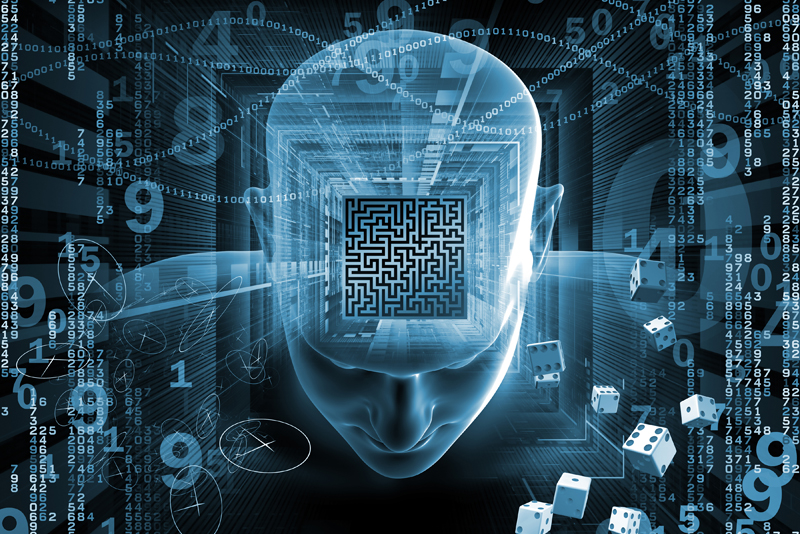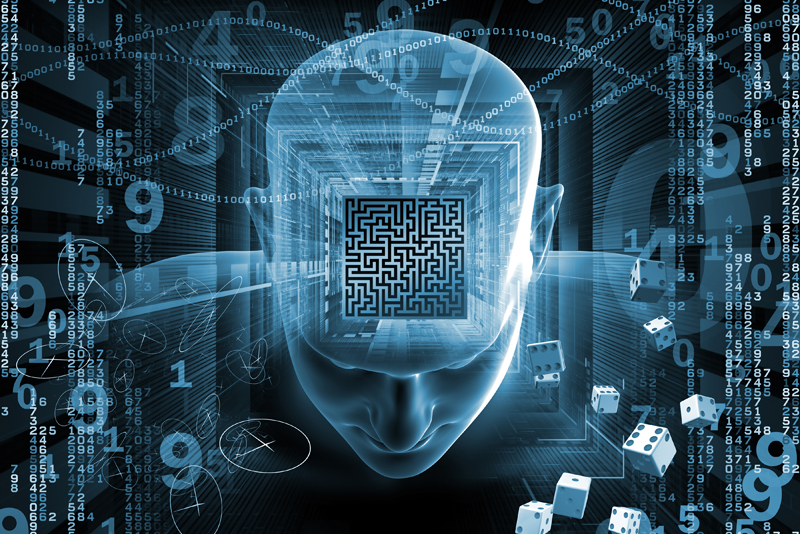Interview with Hypnotist Pete Haviland

Peter C. Haviland, A.C.C.H., a certified clinical hypnotherapist, has been using his gift to help people for about 25 years now. He knows this is his calling. Not only does he help his clients with post-traumatic stress, addictions, smoking, weight loss, stress, grief and many other areas, but he has also assisted law enforcement agencies in cold case homicide investigations. Of interest to me in this interview is Pete’s work with the paranormal.
Peter has been interested in parapsychology since he was 12 or 13 and saw his grandfather walking down the stairs. “He had passed the year before,” explained Pete, “and it was around that time that I started studying a lot of stuff on haunted houses and just anything I could get.”
Peter has continued his study of the subject throughout his life including William G. Roll’s work on recurrent spontaneous psycho kinesis with J.B. Rhine at the Parapsychology Laboratory of Duke University. His mentor is author and parapsychologist Loyd Auerbach.
“I don’t consider myself a ghost hunter,” said Pete, “I’m into trying to find out why they’re there, why we can do what we can do, psychic experiences, why do we have it, what causes it. So I consider myself a parapsychologist rather than a ghost hunter.”
When people come to Pete telling him they have had what he calls an “event,” Pete hypnotizes his client and tries to find out more about the experience. He likes to go into the event and find out what they were thinking and seeing prior to and as it was happening versus what they reported.
“If you have an event, you either recall the experience or you recall something that might have been a trigger for the experience,” said Pete. From his study of recurrent spontaneous psycho kinesis, Pete is able to help clients find a connection to an event from their past with past regression hypnosis. He is able to remove the negative event and replace it with a positive reality. “When the issue is removed, sometimes the haunting stops,” said Pete.
Alternately, if the client is able to corroborate the details of the event while under hypnosis, Pete then works on finding out what exactly was seen.
“Not everything is recurrent spontaneous psycho kinesis. Not everything is an intelligent or residual haunting. It’s a case-by-case basis,” said Pete.
In today’s world, Pete said if we don’t find a way to alleviate our stress, “the body has to release that somehow” and sometimes we can create a “psychic temper tantrum which is basically what a lot of poltergeist activity is.”
Pete explains that we are all capable of producing this activity in varying amounts. If the body doesn’t find a way to release the stress, we can get sick.
Although Pete does come across legitimate hauntings of the conscious mind surviving death, and he has also experienced residual hauntings, he does believe that recurrent spontaneous psycho kinesis is more predominant than people might think.
Pete and I agree that the majority of the paranormal television shows out there fall under the category of “paranormal entertainment” as opposed to “paranormal research.”
“When you are dealing with entertainment, you have to produce. A lot of the drama is made-up stuff and the public doesn’t know the difference,” said Pete.
The actual study of the event is a very different experience. Rather than taking 2 to 4 hours, it can often take years to help a family. The actual researcher is not living with the family on a day-to-day basis; and, therefore, only seeing small bits and pieces so it can take a good deal of time.
Pete uses a variety of tools to backup the claim of the survival of the living conscious including static cams on tripods, environmental measuring devices, thermal imaging cameras and gauges, and magnetometers. These devices don’t measure the paranormal; but are able to measure deviation from the norm.
“So if you have a medium that is able to pull up names, places and events on the person that is there,” Pete explains, “and you’ve got environmental equipment that shows an event happened, and if I can get a thermal image of a mass and my meters are going off at the same time then I can say that an event is going on.”
Pete is able to help with legitimate hauntings by finding out who he is dealing with if possible, and what their personality and unfinished business might be. In these instances, Pete often uses a medium for help in finding the answers. He also uses a program to create a sketch of the entity.
A residual haunting is placed memory and the absorption of high emotional events in an area including death scenes, war scenes, homes, businesses, etc. The release of high emotions can sometimes be absorbed into the atmosphere. Pete explained that in the right circumstances, our psychic selves will play that back.
Pete believes that all of us are psychic in varying degrees. Experiencing gut feelings or intuition is part of our survival instinct. Depending on what is left, any of our senses are able to pick up that placed memory or tape recording. The activity of a placed memory doesn’t deviate. That one moment was caught in that area.
On the other hand, an intelligent haunting does react to us. It knows we are there. The activity can change.
As far as demons go, Pete says true possessions are very rare but advises strongly that in those rare cases, the family needs to seek out help from a church.
References and additional information:
https://www.redoakhypnosis.com/node/3
https://voices.yahoo.com/poltergeists-noisy-ghosts-recurrent-spontaneous-513101.html?cat=11
https://en.wikipedia.org/wiki/William_Roll
https://www.hauntedamericatours.com/20questions/PeterHaviland.htm
Peter has been interested in parapsychology since he was 12 or 13 and saw his grandfather walking down the stairs. “He had passed the year before,” explained Pete, “and it was around that time that I started studying a lot of stuff on haunted houses and just anything I could get.”
Peter has continued his study of the subject throughout his life including William G. Roll’s work on recurrent spontaneous psycho kinesis with J.B. Rhine at the Parapsychology Laboratory of Duke University. His mentor is author and parapsychologist Loyd Auerbach.
“I don’t consider myself a ghost hunter,” said Pete, “I’m into trying to find out why they’re there, why we can do what we can do, psychic experiences, why do we have it, what causes it. So I consider myself a parapsychologist rather than a ghost hunter.”
When people come to Pete telling him they have had what he calls an “event,” Pete hypnotizes his client and tries to find out more about the experience. He likes to go into the event and find out what they were thinking and seeing prior to and as it was happening versus what they reported.
“If you have an event, you either recall the experience or you recall something that might have been a trigger for the experience,” said Pete. From his study of recurrent spontaneous psycho kinesis, Pete is able to help clients find a connection to an event from their past with past regression hypnosis. He is able to remove the negative event and replace it with a positive reality. “When the issue is removed, sometimes the haunting stops,” said Pete.
Alternately, if the client is able to corroborate the details of the event while under hypnosis, Pete then works on finding out what exactly was seen.
“Not everything is recurrent spontaneous psycho kinesis. Not everything is an intelligent or residual haunting. It’s a case-by-case basis,” said Pete.
In today’s world, Pete said if we don’t find a way to alleviate our stress, “the body has to release that somehow” and sometimes we can create a “psychic temper tantrum which is basically what a lot of poltergeist activity is.”
Pete explains that we are all capable of producing this activity in varying amounts. If the body doesn’t find a way to release the stress, we can get sick.
Although Pete does come across legitimate hauntings of the conscious mind surviving death, and he has also experienced residual hauntings, he does believe that recurrent spontaneous psycho kinesis is more predominant than people might think.
Pete and I agree that the majority of the paranormal television shows out there fall under the category of “paranormal entertainment” as opposed to “paranormal research.”
“When you are dealing with entertainment, you have to produce. A lot of the drama is made-up stuff and the public doesn’t know the difference,” said Pete.
The actual study of the event is a very different experience. Rather than taking 2 to 4 hours, it can often take years to help a family. The actual researcher is not living with the family on a day-to-day basis; and, therefore, only seeing small bits and pieces so it can take a good deal of time.
Pete uses a variety of tools to backup the claim of the survival of the living conscious including static cams on tripods, environmental measuring devices, thermal imaging cameras and gauges, and magnetometers. These devices don’t measure the paranormal; but are able to measure deviation from the norm.
“So if you have a medium that is able to pull up names, places and events on the person that is there,” Pete explains, “and you’ve got environmental equipment that shows an event happened, and if I can get a thermal image of a mass and my meters are going off at the same time then I can say that an event is going on.”
Pete is able to help with legitimate hauntings by finding out who he is dealing with if possible, and what their personality and unfinished business might be. In these instances, Pete often uses a medium for help in finding the answers. He also uses a program to create a sketch of the entity.
A residual haunting is placed memory and the absorption of high emotional events in an area including death scenes, war scenes, homes, businesses, etc. The release of high emotions can sometimes be absorbed into the atmosphere. Pete explained that in the right circumstances, our psychic selves will play that back.
Pete believes that all of us are psychic in varying degrees. Experiencing gut feelings or intuition is part of our survival instinct. Depending on what is left, any of our senses are able to pick up that placed memory or tape recording. The activity of a placed memory doesn’t deviate. That one moment was caught in that area.
On the other hand, an intelligent haunting does react to us. It knows we are there. The activity can change.
As far as demons go, Pete says true possessions are very rare but advises strongly that in those rare cases, the family needs to seek out help from a church.
References and additional information:
https://www.redoakhypnosis.com/node/3
https://voices.yahoo.com/poltergeists-noisy-ghosts-recurrent-spontaneous-513101.html?cat=11
https://en.wikipedia.org/wiki/William_Roll
https://www.hauntedamericatours.com/20questions/PeterHaviland.htm

Related Articles
Editor's Picks Articles
Top Ten Articles
Previous Features
Site Map
Content copyright © 2023 by Deena Budd. All rights reserved.
This content was written by Deena Budd. If you wish to use this content in any manner, you need written permission. Contact Deena Budd for details.



